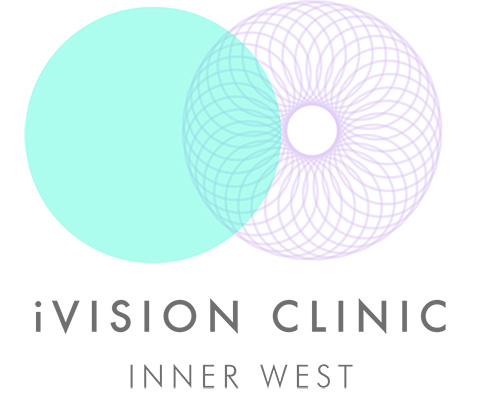If your glasses are new and you can’t see clearly, there are several potential causes:
- You haven’t got used to them yet. Some people only need a few hours to get accustomed to new glasses. Others need a few days and some need a few weeks. Wearing your glasses consistently will help your eyes adjust.
- You may have waited too long to get glasses. About 60% of people who need glasses don’t get them when they need them. Their brains work hard to accommodate the poor vision and when glasses are finally acquired, the brain’s vision centre has to adjust. This tends to happen quickly.
- You have progressive or multifocal lenses. These help you see sharply at all distances. The zones for different distances blend into one another and eventually mean that you can see close-up and far away without image jumps. But these can take up to 3 weeks to get used to.
- Your eyesight can be affected by stress. The more stressed you are, the more impaired your vision can be. If you have your eye test when stressed, your results may be inaccurate and your prescription may not be suitable.
- Chronic diseases. Diseases such as diabetes and hypertension can affect your vision, not just over time but also day to day. Your visual sharpness may fluctuate with your glucose level and blood pressure.
- Some medications can impair your vision. This is something you should ask your doctor about.
- Poor quality lenses. Not all lenses are created equal. Be sure to use a reputable spectacle maker.
If your glasses are not new and you can’t see clearly, you may need to have your eyes checked again. Our vision changes as we age (especially between 40–50 years of age) and we may need a new prescription to meet new needs. As with new glasses, stress, chronic disease and medications may also be causes.
Most floaters or spots in your vision are due to little clumps of protein (collagen) in the jelly-like substance in the back of your eye (the vitreous). The clumps cast shadows on your retina.
Floaters are common in people over 50. They are usually harmless and most people learn to live with them.
It’s rare, but floaters can also be a sign of a serious eye condition. See an eye doctor ASAP if you notice:
- A sudden increase in the number of floaters
- Flashes of light
- A loss of side vision
- Changes that come on quickly and get worse over time
- Floaters after eye surgery or eye trauma
- Eye pain
Flashes of light in your vision can come from inside your eye or from your brain (e.g. with a migraine).
Lights that come from your eye are often due to jelly-like substance at the back of the eye (vitreous) shrinks or changes. This pulls on the retina and creates the flashing light effect.
Many people will see occasional flashes of light, especially as they age. These occasional flashes are usually harmless, but you should discuss them with your eye specialist during your next eye exam.
Call your GP or eye specialist right away if you suddenly start seeing repeated flashes of light. This could be a serious problem, especially if you also have vision changes or sudden floaters. These could indicate that your retina has detached. This is a very serious condition that must be treated quickly to prevent blindness.
Losing your peripheral vision could indicate that you have a medical condition affecting your eyes. The most common conditions that cause peripheral vision loss are:
- Glaucoma (very common)
- Retinitis pigmentosa
Any peripheral vision loss needs to be assessed by an eye specialist. Diagnosing and treating the underlying cause promptly can prevent further vision loss.
Black patches in your central vision may indicate that you have a macular problem such as:
- Age related macular degeneration (AMD)
- Macular hole
- Macular disease
Macular degeneration is the leading cause of blindness in Australia. If you see black patches in your central vision, see an eye specialist.
These conditions are often successfully treated with laser refractive surgery (such as LASIK, PRK, SMILE). At iVision, we offer a complimentary laser vision correction consult to assess your suitability for laser vision correction and can tailor the treatment options to your needs.
Yes. If you have diabetes, it’s likely you will develop some changes to your eyes. This is true for both type 1 and type 2 diabetes.
Your blood sugar levels can have a direct effect on your ability to focus, causing day to day variations in your vision. This problem improves when blood sugar levels are stable.
Having diabetes places you at risk of Diabetic Retinopathy. The risk increases the longer you have diabetes and the less well controlled your blood sugar levels are.
Symptoms of Diabetic Retinopathy include:
- Blurred, distorted or patchy vision that can’t be corrected with prescription glasses
- Problems with balance, reading, watching television and recognising people
- Being overly sensitive to glare
- Difficulty seeing at night
In the early stages of Diabetic Retinopathy there may be no symptoms and the disease may not be diagnosed until it is advanced.
Good blood sugar levels, good blood pressure and regular comprehensive eye examinations can greatly reduce your risk of developing diabetic retinopathy.
Regular headaches may or may not be related to your eyes. If you have been experiencing regular headaches for a while, you might have chronic daily headache (CDH). This term covers several different types of headache such as:
- Migraine headache (very common)
- Tension-type headache (very common)
- Medication overuse headache (very common)
- Hemicrania continua
- New daily persistent headache
- Chronic cluster headache
- Chronic paroxysmal hemicrania
- Hypnic headache
You should see your GP if you are experiencing regular headaches. If you can, keep a ‘headache diary’. This can help your GP make a diagnoses, identify triggers and provide the right treatment.
